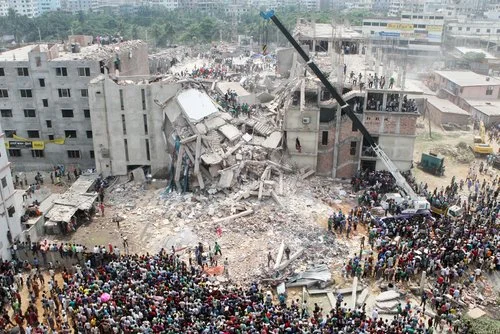Remembering Rana Plaza 10 Years Later: A Wake Up Call to the Fashion Industry
24 April 2013, a fashion factory building in Bangladesh collapsed, killing 1,134 people and injuring over 2,500. The factory was producing clothes for global brands such as Primark, Mango, and Benetton, among others.
The Rana Plaza incident brought to light the poor working conditions and lack of safety regulations in the garment industry. It sparked outrage and protests around the world, and it prompted the creation of the Fashion Revolution movement, which encourages consumers to ask "Who made my clothes?" and demand greater transparency and sustainability in the fashion supply chain.
The Rana Plaza incident is a reminder that our clothes have a human cost. The people who make our clothes deserve fair wages, safe working conditions, and respect for their human rights.
It is not by coincidence, but by design, that within the global fashion industry, garment worker wages are artificially low and that brands continue to source from regions where it is impossible, difficult and/or unsafe for workers to form trade unions and bargain for greater rights - Fashion Revolution
Rana Plaza 24 April 2023
As consumers, we have the power to demand change in the fashion industry. How? By choosing to support sustainable and ethical fashion brands, reducing our own consumption, and demanding greater transparency and accountability from the fashion industry, we can make a difference.
Join the Fashion Revolution movement and ask #whomademyclothes. Together, we can create a better future for the fashion industry and for the people who make our clothes.
To learn more about Fashion Revolution click here.
